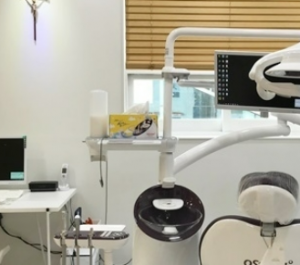How to manage after Tooth extraction
After tooth extraction, you should remain seated and take it easy for the next few hours. It’s important to avoid chewing on the gauze pad that was placed by your dentist. Try not to bite the pad if it becomes soaked in blood. You should try not to brush or use mouthwash for the first few hours following the procedure. Also, avoid drinking from a straw, as it can interfere with the healing process.

Before having a tooth extracted, you should schedule an appointment with your dentist. You should bring your medical history and any medications with you. Your oral surgeon will need to know about your current medications to ensure you’re receiving the correct care. It’s important to have a designated driver while you’re at the office, because anesthesia can affect your ability to focus. After the procedure, you should avoid brushing your teeth or drinking liquids through a straw for the first 24 hours, and take painkillers and antibiotics as prescribed by your dentist.
Following the tooth extraction, you’ll likely feel some pain and swelling. 강남역치과 You may experience some bleeding afterward. Your dentist will prescribe medicine to help with the pain. You’ll also need to avoid touching the site while it heals. During this time, you should avoid disturbing the site. If your mouth is sore, you should rinse it frequently with saline solution or mouthwash. Those with sore gums should wear a gauze pad to ensure that the area doesn’t get infected. You should have your mouth washed before the extraction. You should wear a short-sleeved shirt.
It is important to have someone drive you home after tooth extraction.
After tooth extraction, you’ll need to recover for a couple of days. This will help reduce the risk of infection, lessen the discomfort, and speed up your recovery. During the first 24 hours after the extraction, you should try to avoid eating and drinking, as this will disturb the clot that forms in the socket. You should also avoid chewing on things that can cause bleeding, such as your fingernails.
After the procedure, you should wash your mouth with saline solution or mouthwash. These will help kill bacteria and keep the area numb. You should also avoid rubbing or touching the site of the extraction. The area will be irritated for the next couple of hours. You should also ask your dentist about sedation.
It is important to avoid causing any discomfort, but the pain will not be too severe. The pain will last only a few hours. You should avoid eating or drinking for six to eight hours before the procedure. You should also tell your dentist if you have a cold or fever. If you are feeling unwell, the dentist might want to reschedule the procedure.
You should wear a loose-fitting shirt.
During the procedure, you should avoid eating for a few hours. You should drink plenty of water to avoid dehydration. You should avoid alcoholic beverages before the procedure. In case you’re prone to infection, you should avoid drinking alcohol and smoking for a while for a Tooth Extraction. Otherwise, you might have suffered from a sore throat or other health issues. You should avoid drinking alcohol.
After tooth extraction, you should wear a short-sleeved shirt and avoid eating anything for at least a day. Your dentist will also need to numb the area with a topical anesthetic. You should talk and keep the socket free from pain. If you’re worried about pain, you should avoid speaking with the patient. You should also avoid smoking on the day of the extraction. After tooth extraction, you should avoid taking any drugs that may have adverse effects. If you smoke, you should avoid consuming any alcohol after the procedure.
After the procedure, you should not disturb the site of the extraction. You’ll need to drink water to prevent infection. You should avoid eating any food that may contain a lot of sugar. Additionally, you should avoid spiking your blood. If the pain persists, you should talk to your dentist. The dentist can also help you with any pain after the procedure. When you’re ready, you can return to your normal diet and exercise.